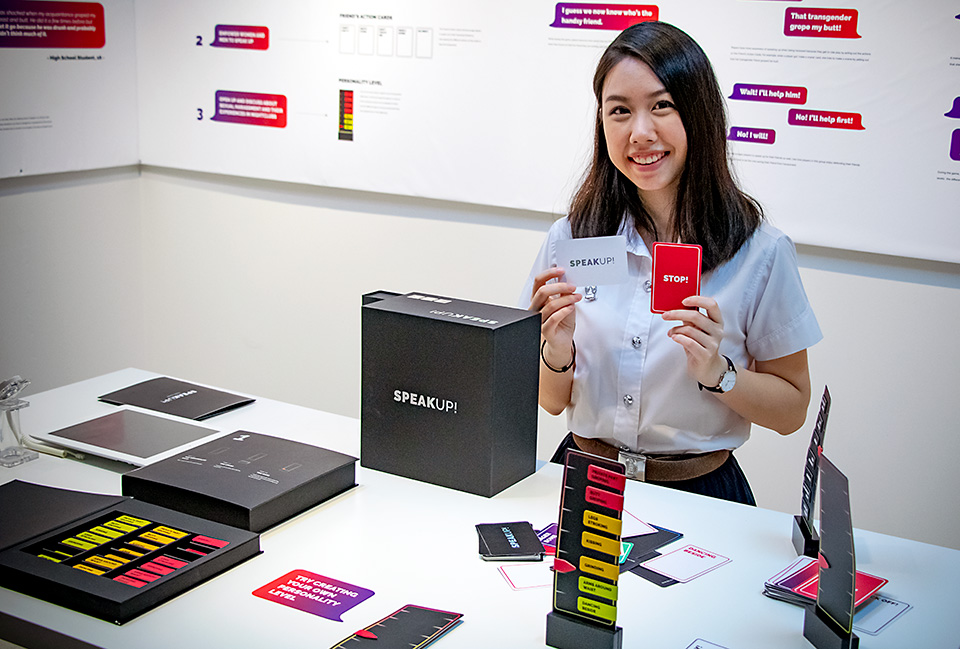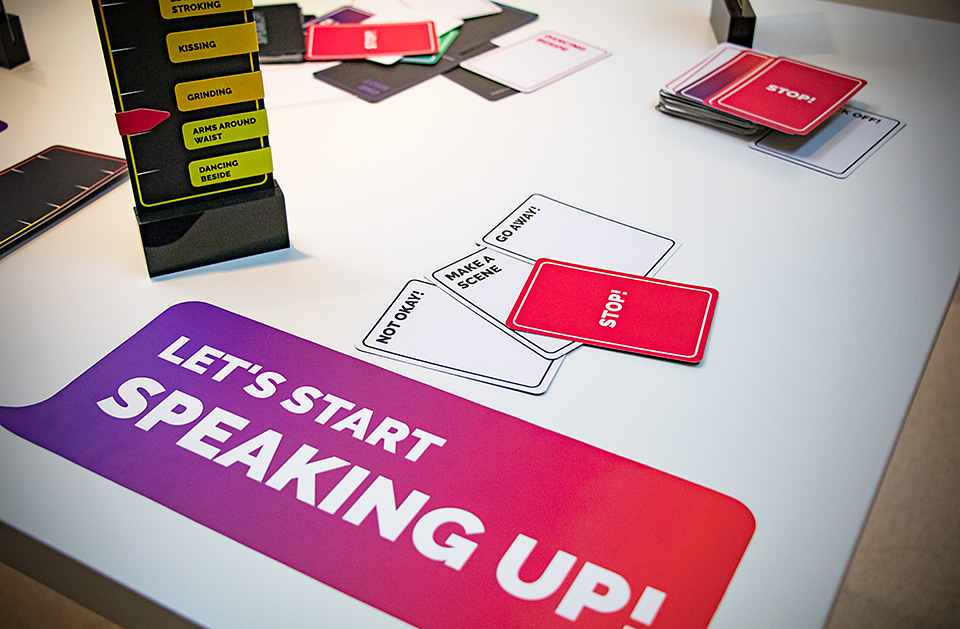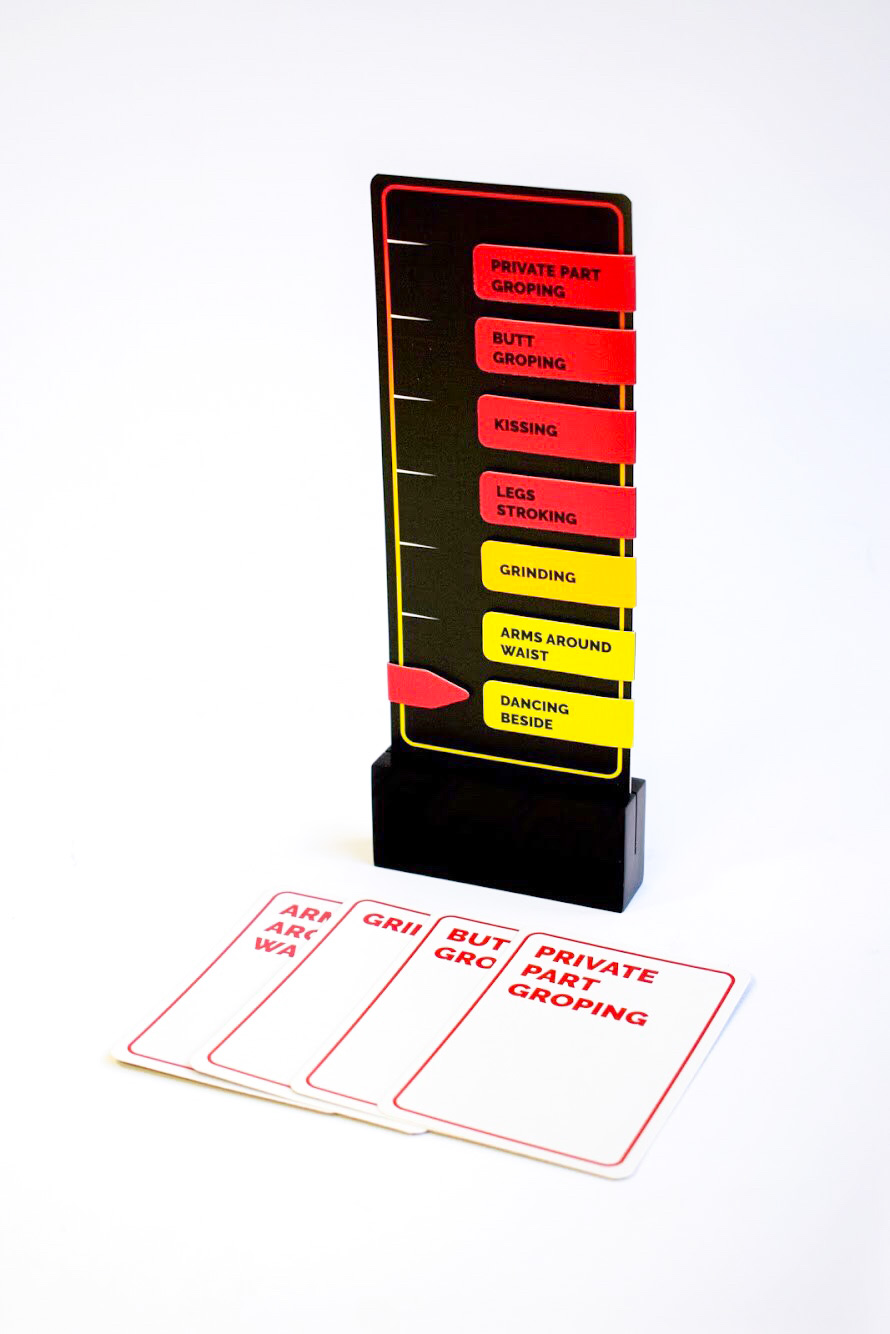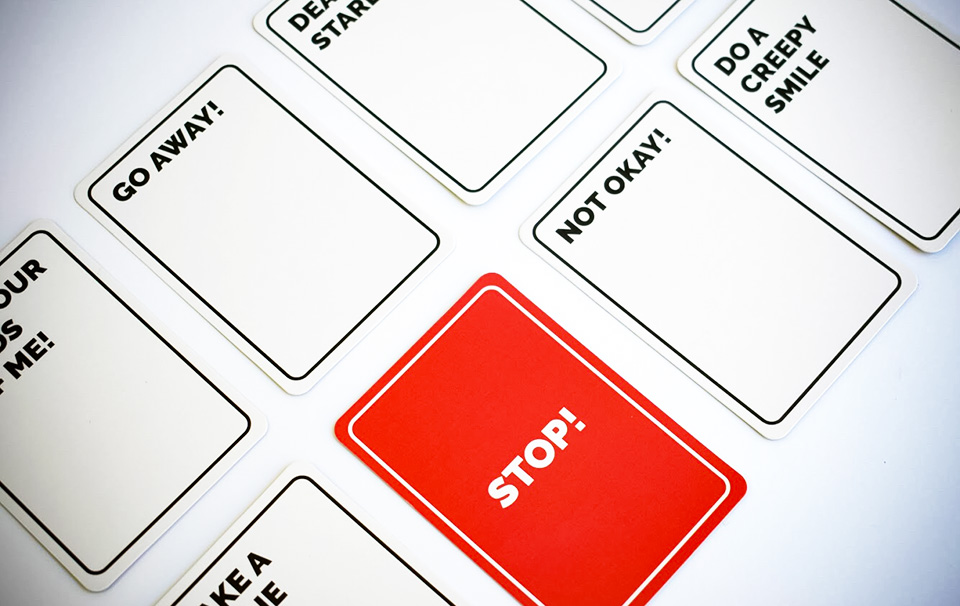Stopping sexual harassment by drunk ‘friends’
Bangkok-based university student creates game to get people to Speak Up!Date:
Author: Caitlyn Quinn
Bangkok, Thailand — “I was shocked when my acquaintance groped my breast and butt. He did it a few times but I let it go because he was drunk and probably didn’t mean much by it.”

Mint Wongvorakul was holding interviews for her university thesis on sexual harassment when she was told this by an 18-year-old high school student, and she knew she had to do something to get people to re-think their ideas about sexual harassment.
“In Thai society, we don’t really talk about this stuff. So, by playing the game, they are able to talk about what actions they are and are not okay with.”
“Most women and men don’t see their friend as a harasser,” she said. “They don’t associate the word ‘harassment’ with friend. So, when they’ve been harassed, they try to think that, oh their friend is drunk or they didn’t mean it, and let it go.”
While it is strangers that women fear, Wongvorakul found that more than 91 per cent of sexual assault victims know their attacker, and “the top attacker is their acquaintances or friends.” What’s more, alcohol is involved in more than 31 per cent of sexual assaults, said the 21-year-old student of International Programme in Communication Design, Department of Industrial Design, Faculty of Architecture, Chulalongkorn University.
So Wongvorakul created a clever card game called Speak Up! to get people to think about friends and red lines.

“Most teenagers today will have a pre-drink before they go out the nightclub, so this is a game I expect them to play before going out,” she said.

In the first part of the game, each player ranks how they perceive a range of behaviours such as kissing, dancing beside a partner and putting an arm around their shoulder. Through this, they define what actions they are comfortable with and what they would consider to be sexual harassment. Wongvorakul found in her online survey of 176 Thai women aged 18 to 50 that they have different views of each of these behaviours. “I realised that it’s up to the rights and desires of each woman,” she said.
In the second part of the game, players imagine they and their friends are having a blast dancing and drinking at a nightclub. Someone in the group is “handsy,” and the friends must work together to find out who it is and stop him before he turns into a harasser.
The player who draws the Drunk Card becomes the handsy friend. The handsy friend makes his move by using cards ranging from “Dancing Beside” all the way to “Private Part Groping”. Having already defined what they will and will not tolerate, the other players defend themselves or their friends with cards that say, “I Don’t Like It!”, “Death Stare”, “Don’t Touch Me”, and so on. With three “Stop!” cards, they force the handsy friend out of the game.

“The game provides a fun situation to help you be able to speak up without being too serious,” Wongvorakul said.
When testing the game with her friends, Wongvorakul found that they “were arguing, fighting over to be the one to save their friend from sexual harassment”.
“In Thai society, we don’t really talk about this stuff,” she said. “So, by playing the game, they are able to talk about what actions they are and are not okay with.”
“I want women and men to speak up whenever they are harassed.”